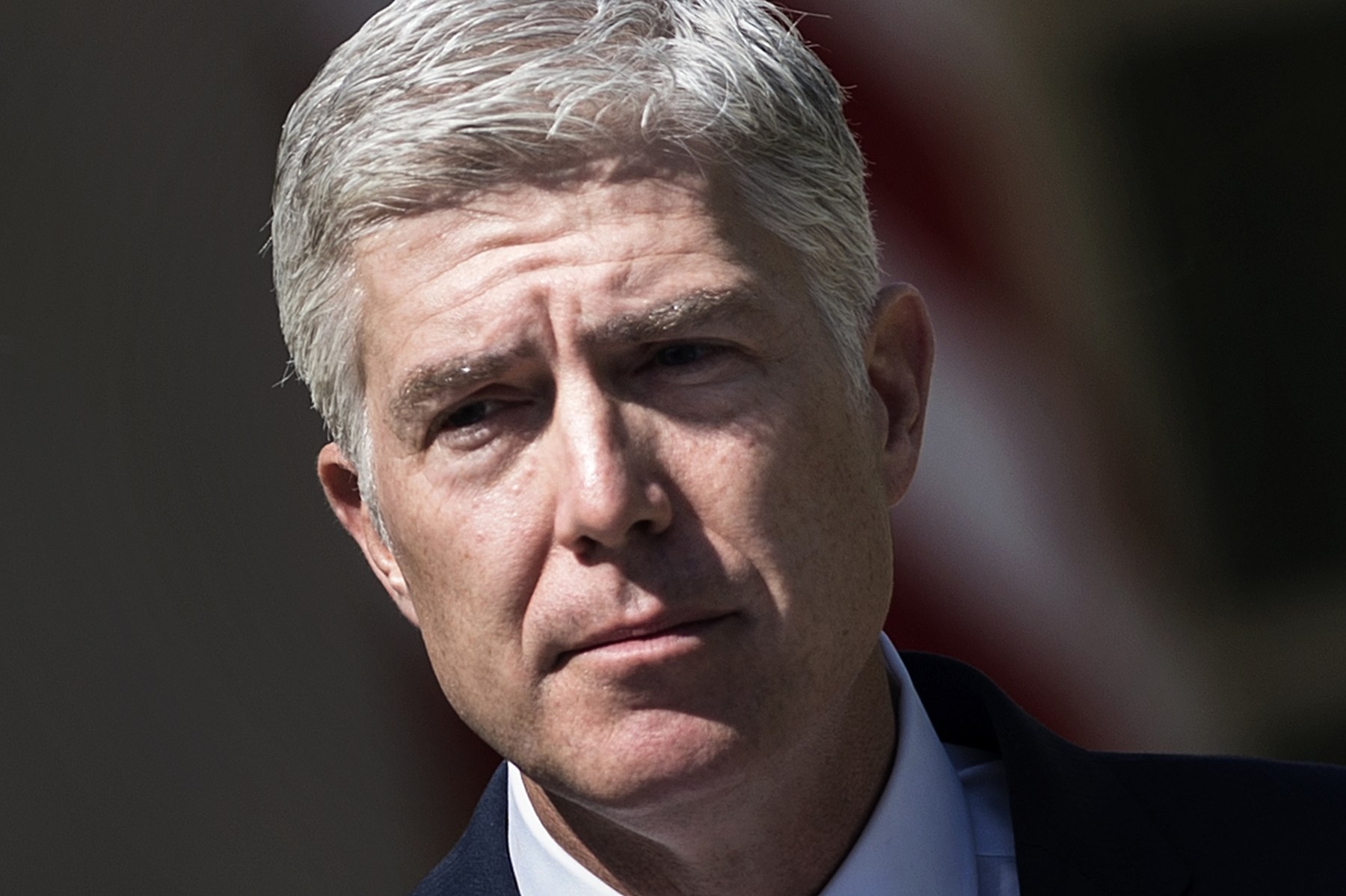
In one cutting remark, Justice Ruth Bader Ginsburg summed up how Justice Neil Gorsuch’s patronizing lecture on the Constitution omitted some of the Court’s most important precedents.
Photograph by Brendan Smialowski / AFP / Getty
Toward the end of the Supreme Court’s argument in Gill v. Whitford, about the future of partisan gerrymandering, there was a revealing moment about the place of the newest Justice in the esteem of at least one of his peers. In less than a year, Neil Gorsuch has dominated oral arguments, lectured his colleagues, and given dubiously appropriate public speeches. Questioning Paul Smith, the lawyer challenging Wisconsin’s contorted district lines, Gorsuch made another pedantic gesture.
The argument had gone on for nearly an hour when Gorsuch began a question as follows: “Maybe we can just for a second talk about the arcane matter of the Constitution.” There was a rich subtext to this query. Originalists and textualists such as Gorsuch, and his predecessor on the Court, Antonin Scalia, often criticize their colleagues for inventing rights that are not found in the nation’s founding document. Gorsuch’s statement that the Court should spare “a second” for the “arcane” subject of the document was thus a slap at his ideological adversaries; of course, they, too, believe that they are interpreting the Constitution, but, in Gorsuch’s view, only he cares about the document itself.
Gorsuch went on to give his colleagues a civics lecture about the text of the Constitution. “And where exactly do we get authority to revise state legislative lines? When the Constitution authorizes the federal government to step in on state legislative matters, it’s pretty clear—if you look at the Fifteenth Amendment, you look at the Nineteenth Amendment, the Twenty-sixth Amendment, and even the Fourteenth Amendment, Section 2.” In other words, Gorsuch was saying, why should the Court involve itself in the subject of redistricting at all—didn’t the Constitution fail to give the Court the authority to do so?
Ruth Bader Ginsburg, who is bent with age, can sometimes look disengaged or even sleepy during arguments, and she had that droopy look today as well. But, in this moment, she heard Gorsuch very clearly, and she didn’t even raise her head before offering a brisk and convincing dismissal. In her still Brooklyn-flecked drawl, she grumbled, “Where did ‘one person, one vote’ come from?” There might have been an audible woo that echoed through the courtroom. (Ginsburg’s comment seemed to silence Gorsuch for the rest of the arguments.)
In one cutting remark, Ginsburg summed up how Gorsuch’s patronizing lecture omitted some of the Court’s most important precedents, and Smith gratefully followed up on it: “That’s what Reynolds v. Sims and Baker v. Carr did, and a number of other cases that have followed along since.” In these cases from the early nineteen-sixties, the Court established that the Justices, via the First and Fourteenth Amendments, very much had the right to tell states how to run their elections.
In short, Ginsburg was saying to Gorsuch that he and his allies might control the future of the Supreme Court, but she wasn’t going to let them rewrite the history of it—at least not without a fight.
Hi! I am a robot. I just upvoted you! I found similar content that readers might be interested in:
https://www.newyorker.com/news/news-desk/ginsburg-slaps-gorsuch
Downvoting a post can decrease pending rewards and make it less visible. Common reasons:
Submit